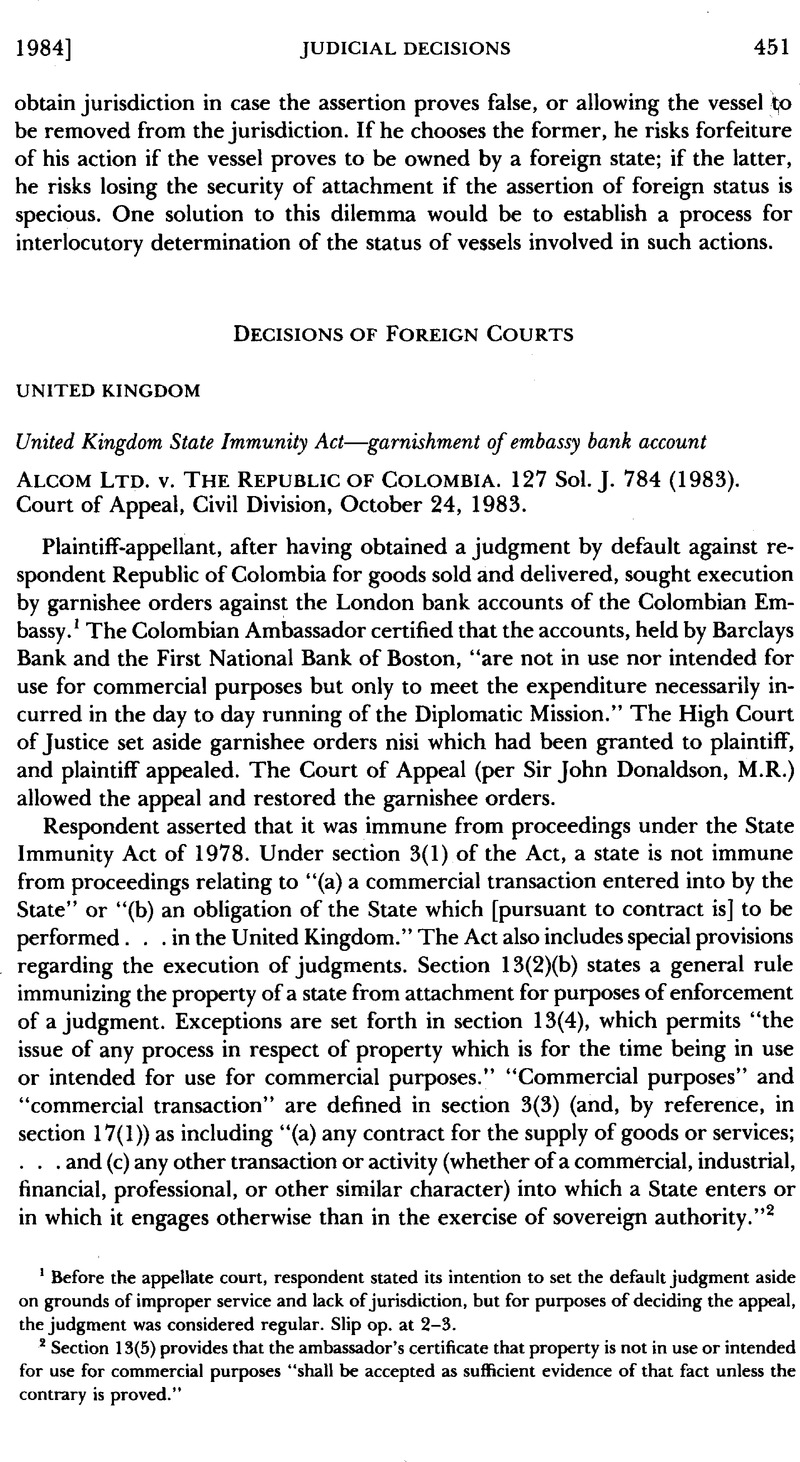No CrossRef data available.
Article contents
Decisions of Foreign Courts
Published online by Cambridge University Press: 27 February 2017
Abstract

- Type
- Judicial Decisions
- Information
- Copyright
- Copyright © American Society of International Law 1984
References
1 Before the appellate court, respondent stated its intention to set the default judgment aside on grounds of improper service and lack of jurisdiction, but for purposes of deciding the appeal, the judgment was considered regular. Slip op. at 2–3.
2 Section 13(5) provides that the ambassador’s certificate that property is not in use or intended for use for commercial purposes “shall be accepted as sufficient evidence of that fact unless the contrary is proved.”
3 Slip op. at 5–6.
4 Id. at 10.
5 Id. at 11.
6 Id. at 12–13. The court noted, however, that a diplomatic mission could protect its funds from attachment by maintaining accounts in the name of the state’s central bank, under section 14(4) of the Act. Id. at 10.
7 Cf. Birch Shipping Corp. v. Embassy of United Republic of Tanzania, 507 F. Supp. 311 (D.D.C. 1980), summarized in 75 AJIL 373 (1981) (under FSIA §1610(a)(l), embassy checking account used for both commercial and governmental activities is subject to garnishment for enforcement of arbitral award). But the American court pointed out that the Embassy had the option to maintain one account for governmental activities and another for commercial activities.
8 28 U.S.C. §1610(a).
9 28 U.S.C. §1610(a)(2).
* Prepared by Stefan A. Riesenfeld, of the Board of Editors.
1 In a summary of the decision of the Court of Appeals of Frankfurt, May 11, 1981, 77 AJIL 159, 160 (1983), reference was made to a pending proceeding in the Federal Constitutional Court. It resulted in the decision noted here.
2 Like U.S. law, German law distinguishes between seeking relief from an order of attachment and relief from a levy made pursuant to such order. In the case before the Federal Constitutional Court, the objections against the issuance of the writ of attachment were still pending.
3 Matter of the Republic of the Philippines, reported in 73 AJIL 305 (1979), as corrected in id. at 703.


